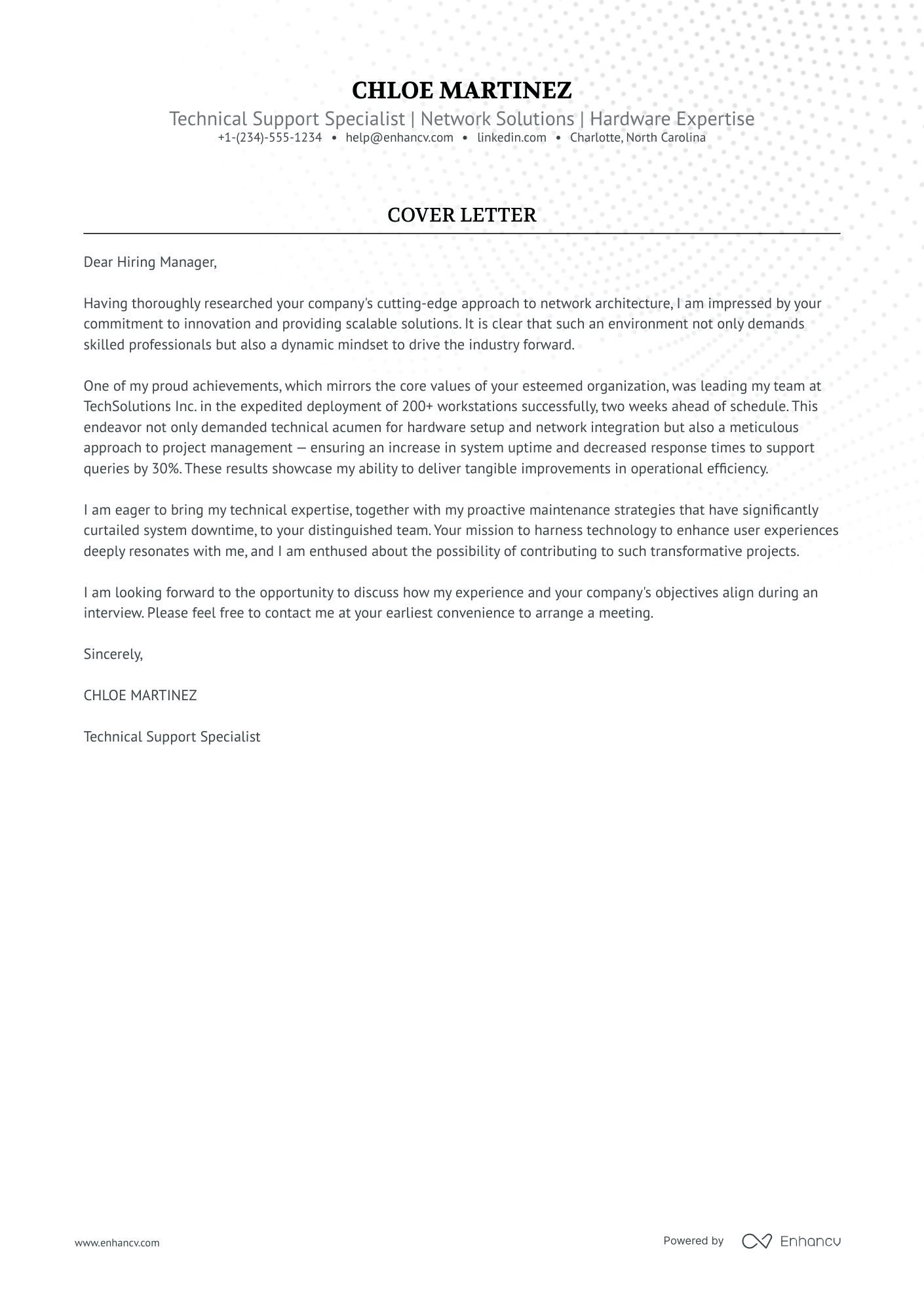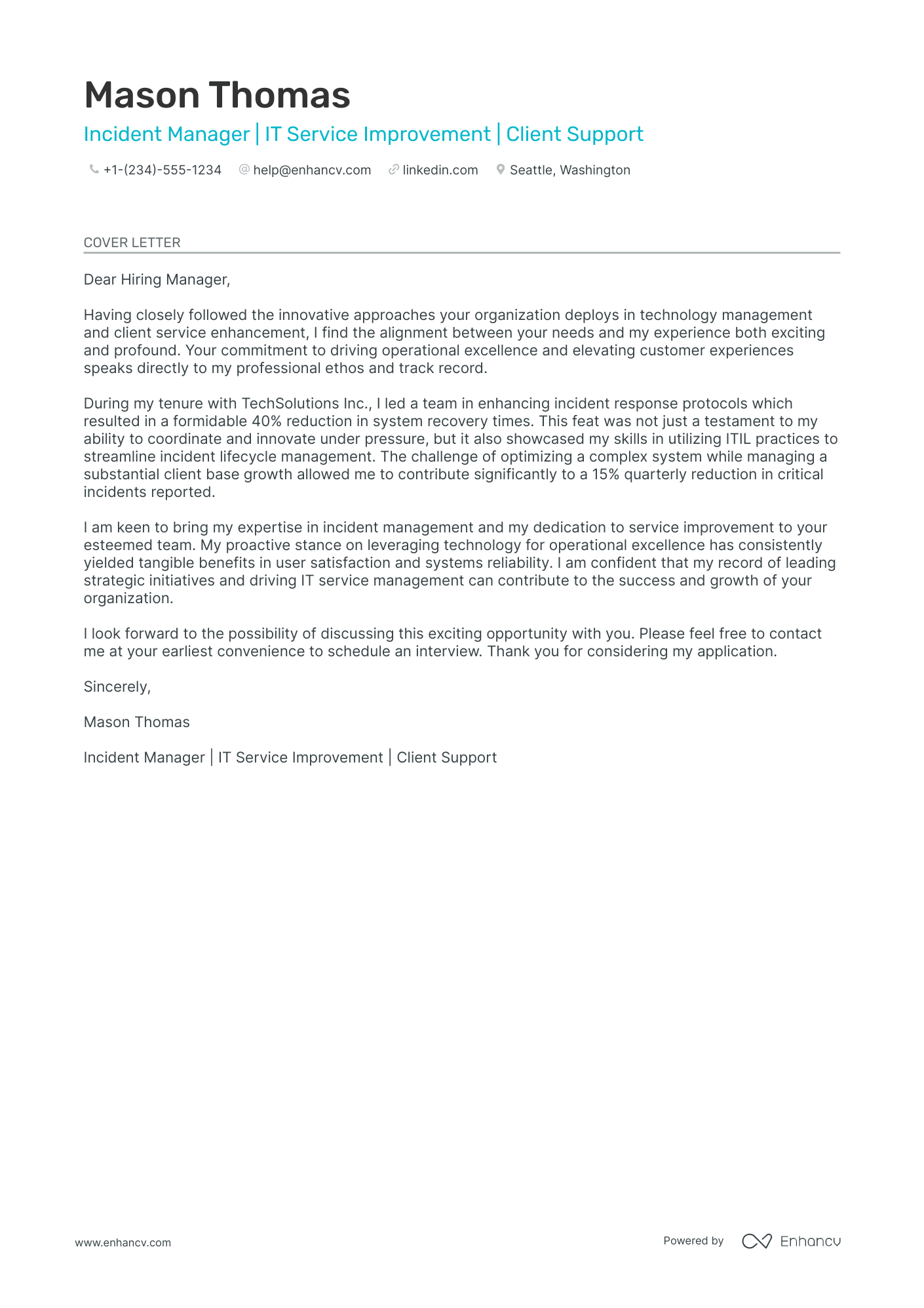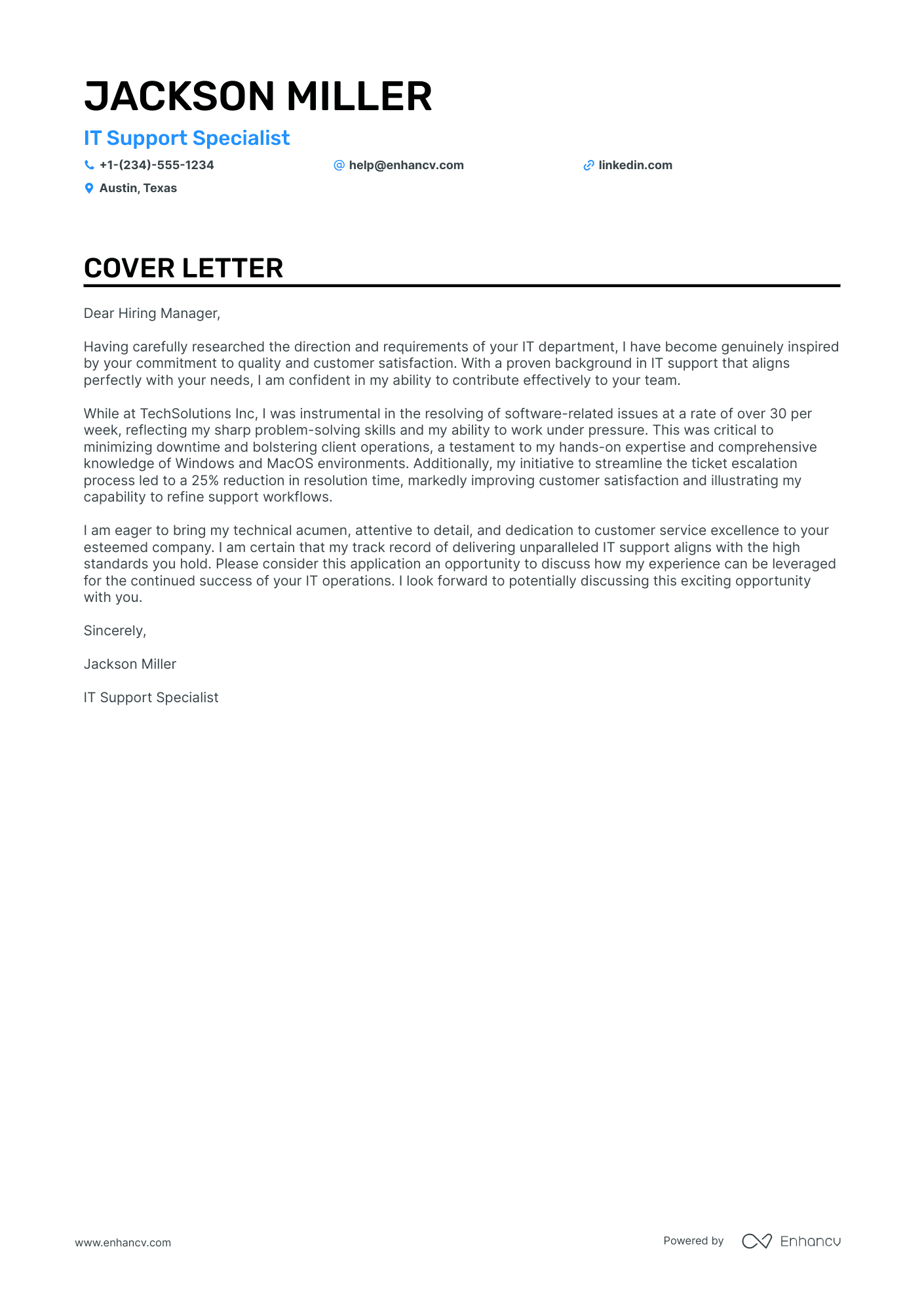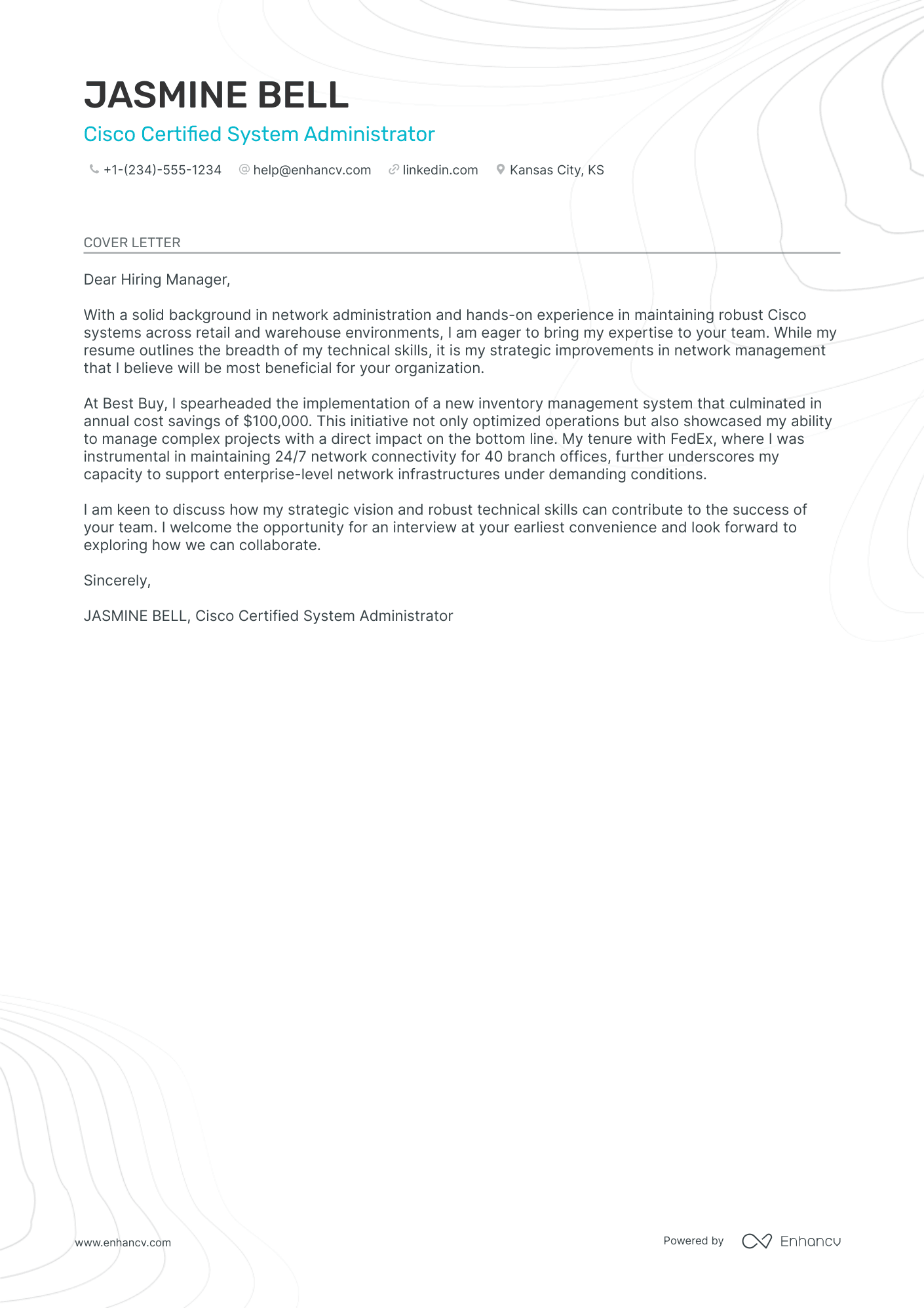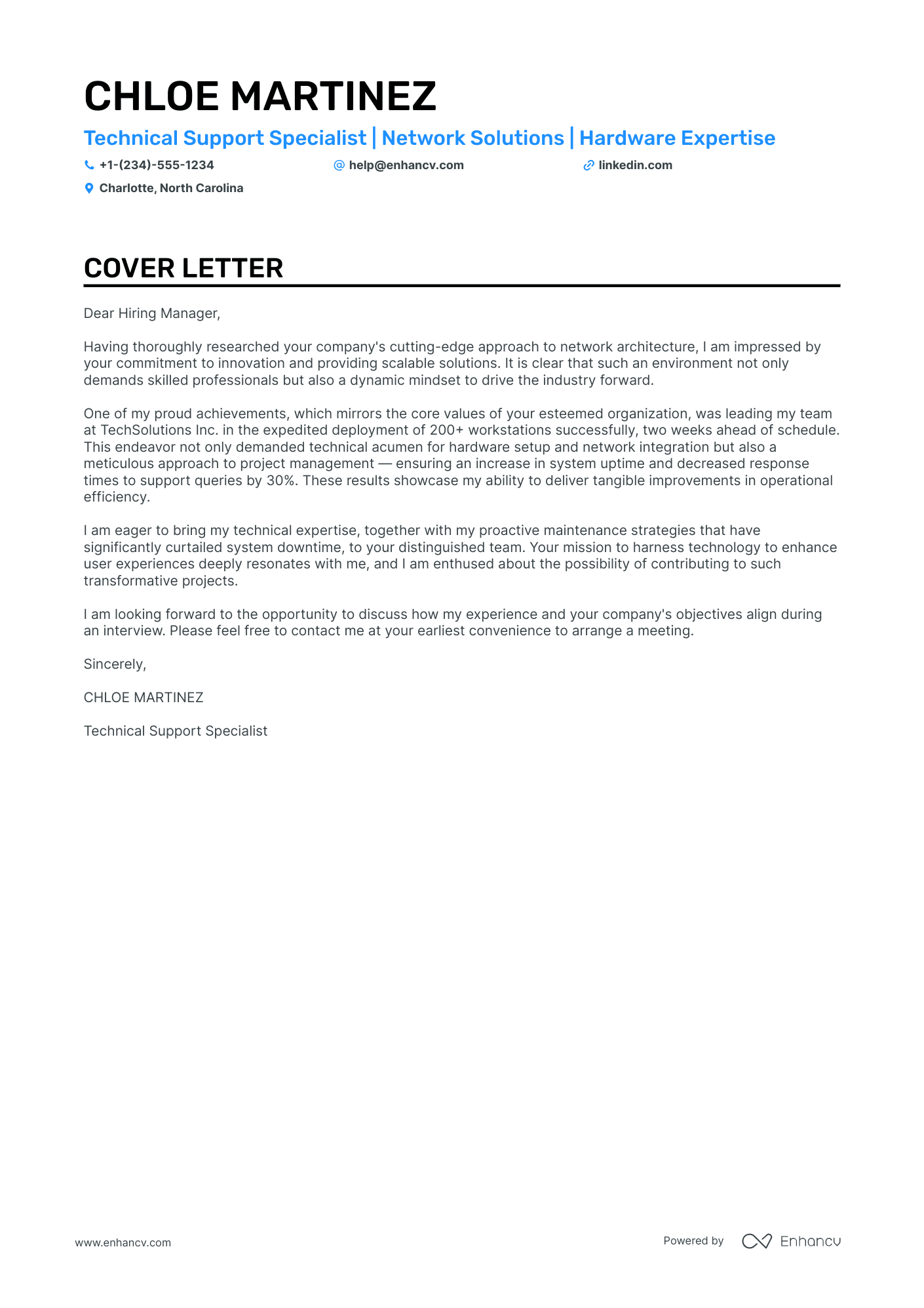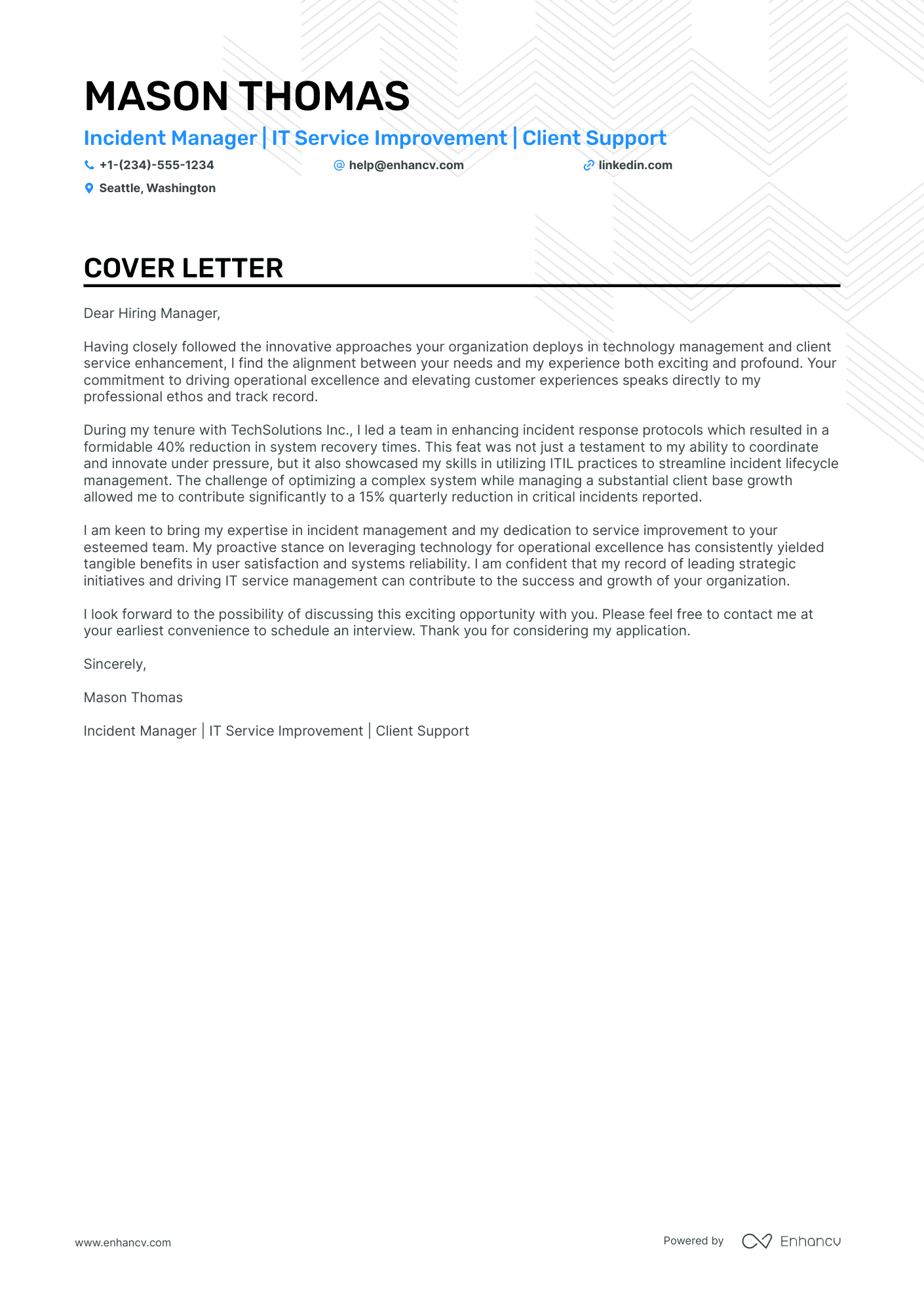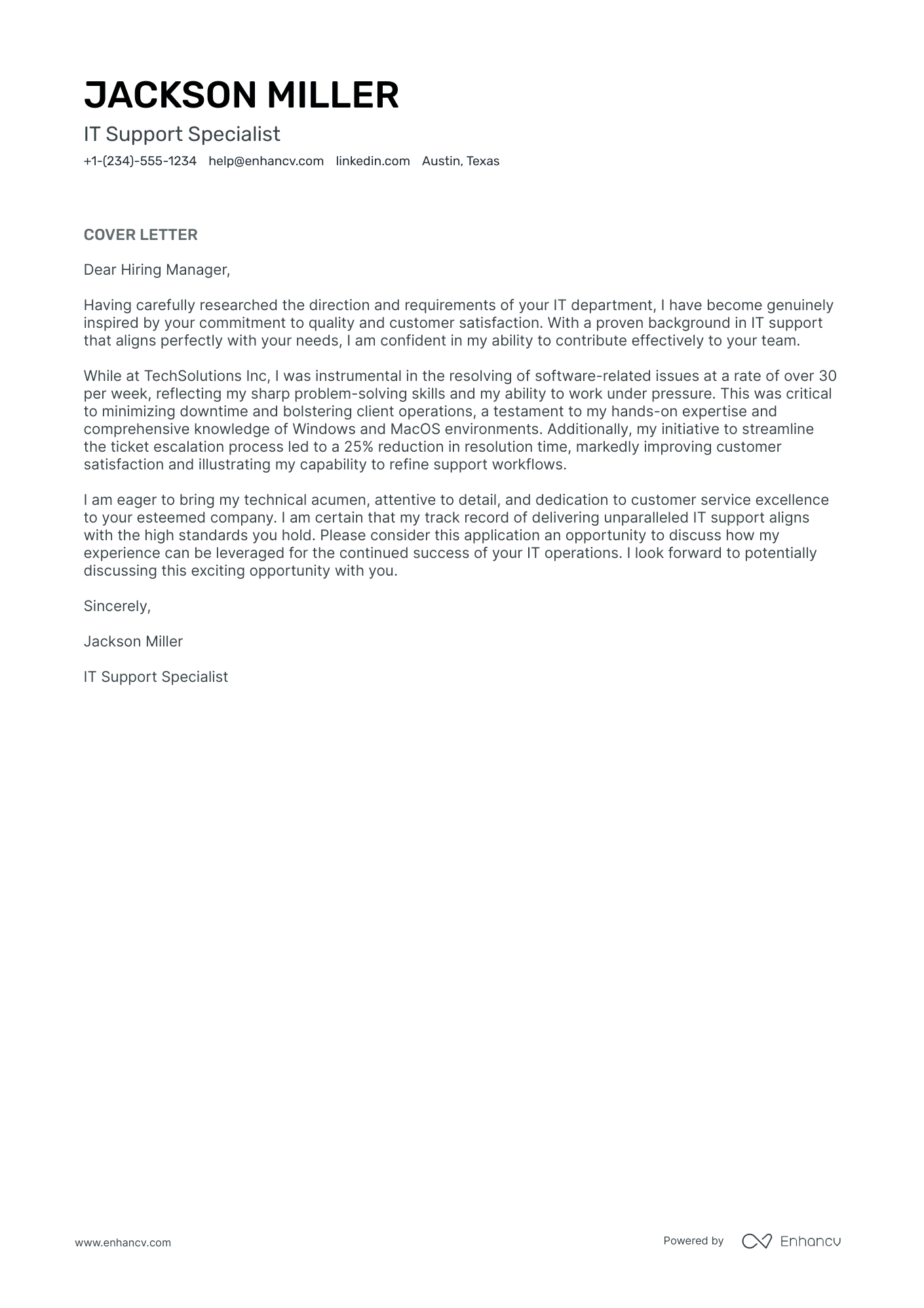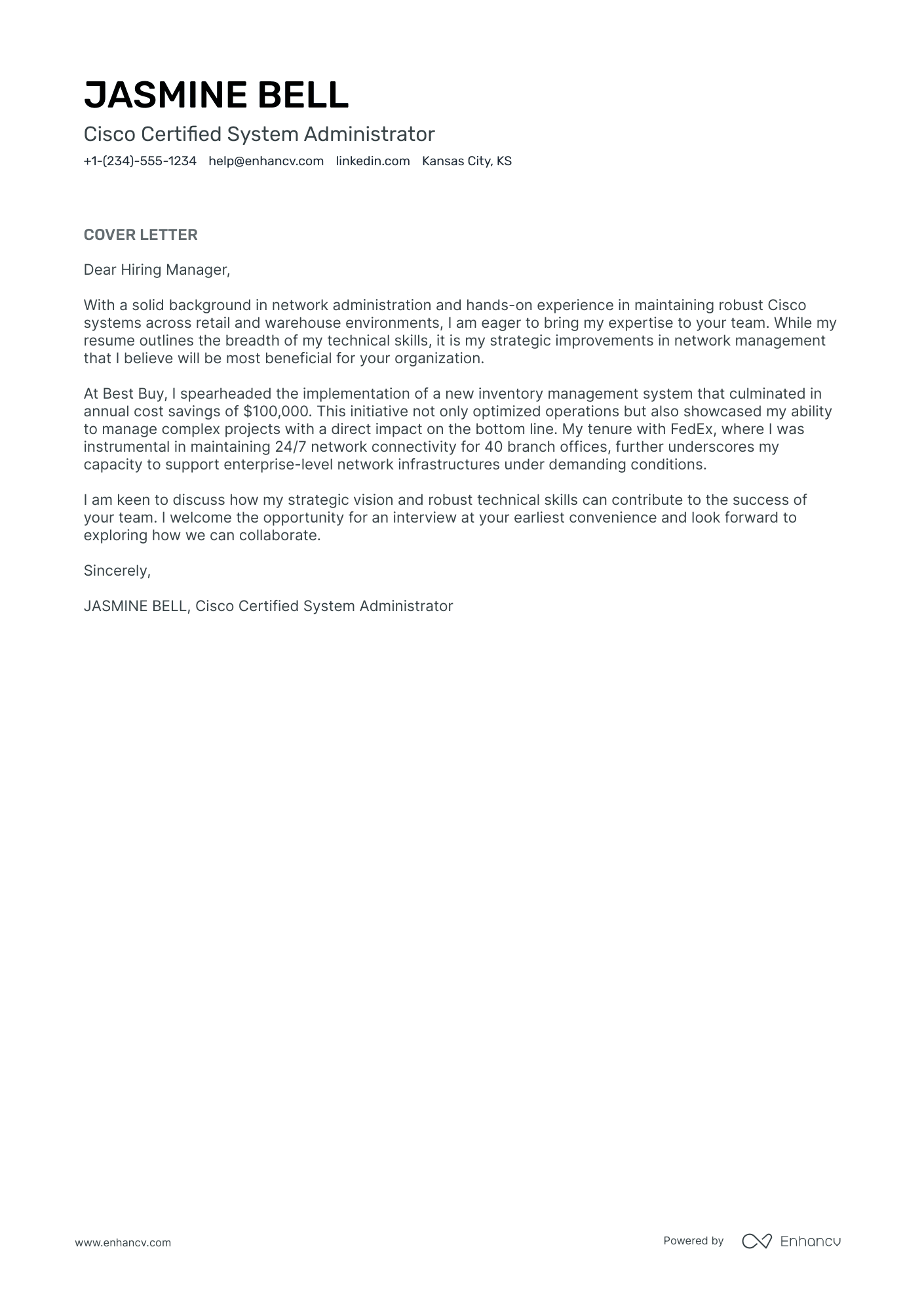You've polished your resume and you're ready to apply for that IT support role, but there's a catch; you need an impressive cover letter. Unlike your resume, your cover letter is your chance to shine by sharing a standout professional achievement, without spilling into clichés or a two-page length. Let's guide you through creating a concise, engaging cover letter that complements your resume and captivates hiring managers.
- Introduce your profile to catch recruiters' attention;
- Use professional templates and examples to make sure your it support cover letter follows the best industry standards;
- Settle on your most story-worthy achievement to shine a light on what makes your application unique;
- Write a it support cover letter, even when you lack professional experience.
Ready to start with the basics: upload your resume to Enhancv's AI, below, to see the it support cover letter it would write for you.
If the it support isn't exactly the one you're looking for we have a plethora of cover letter examples for jobs like this one:
Drop your resume here or choose a file.
PDF & DOCX only. Max 2MB file size.
IT support cover letter example
John Ditko
New York, NY
+1-(234)-555-1234
help@enhancv.com
- Emphasis on relevant past achievements: Highlighting a specific successful project like the "critical system overhaul" at XYZ Corp demonstrates a proven track record and the ability to have a measurable positive impact on the company.
- Showcasing technical and soft skills: Mentioning deep technical acumen and understanding of user needs indicates a well-rounded candidate with both the hard skills necessary for the role and the soft skills to ensure customer satisfaction.
- Tailoring to the company's values: Addressing the company's innovative customer support solutions illustrates that the candidate has done their research and aligns with the company's direction and values.
Structuring and formatting your it support cover letter
Here's what the structure of your it support cover letter should include:
- Header (with your name, the position you're applying for, and the date);
- Salutation (or greeting);
- Introductory paragraph (or your opening statement);
- Body paragraph (or further proof of your experience);
- Closing paragraph (with a call to action);
- Signature (that is optional).
Use the same font for your it support resume and cover letter - modern fonts like Lato and Rubik would help you stand out.
Your it support cover letter should be single-spaced and have a one-inch margins - this format is automatically set up in our cover letter templates and our cover letter builder.
When submitting your cover letter, always ensure it's in PDF, as this format keeps the information intact (and the quality of your document stays the same).
On one final note - the Applicant Tracker System (ATS or the software that is sometimes used to initially assess your application) won't read your it support cover letter.
Don’t let a busy schedule hold you back. Try our free cover letter generator and build a great letter in seconds.
The top sections on a it support cover letter
Header with Contact Information: This section includes your name, address, phone number, email, and possibly your LinkedIn profile. It's essential for the recruiter to know who you are and how to contact you, setting a professional tone for your IT support cover letter.
Greeting with Personalization: Address the letter to the specific hiring manager or recruiter if possible. A personalized greeting shows you have done your research and are serious about the role, which is important in IT support roles where attention to detail is key.
Introduction with Relevant Experience: Begin with an engaging opening that highlights your most relevant experience, such as troubleshooting or customer service skills. This immediately shows the recruiter that you have the necessary IT support background.
Body with Technical and Soft Skills: The body should go into detail about your technical competencies (like familiarity with help desk software or knowledge of IT infrastructure) and soft skills (such as communication or problem-solving). These details will help recruiters see you as a well-rounded candidate for the IT support role.
Closing with a Call to Action: Conclude your cover letter by expressing your enthusiasm for the position and suggesting an interview or a follow-up. A call to action demonstrates your proactive approach, which is a valued trait in any IT support professional.
Key qualities recruiters search for in a candidate’s cover letter
- Strong problem-solving skills: Demonstrating the ability to troubleshoot and resolve a variety of technical issues ensures minimal downtime and customer satisfaction.
- Technical proficiency and knowledge: Familiarity with various operating systems, hardware, software, and networking is crucial for effective support.
- Excellent communication and interpersonal skills: Clear and patient communication is necessary to explain technical concepts to non-technical users and to collaborate with team members.
- Customer service orientation: A customer-focused approach is key in IT support to provide helpful service that enhances user experience and encourages positive feedback.
- Experience with helpdesk or ticketing systems: Previous use of IT support tools is important for tracking issues, managing workflow, and documenting solutions.
- Adaptability and continuous learning: Technology evolves rapidly, so a commitment to staying current with the latest trends and having the flexibility to adapt to new systems is essential.
How to greet recruiters in your it support cover letter salutation
As the saying goes, "You never get a second chance to make a first impression."
Write your it support cover letter salutation to be more personalized to the actual hiring manager, who is set to assess your profile by:
- greeting them on a first-name basis, if you have previously communicated with them (e.g. "Dear Sam,");
- using their last name, if you have more formal communication or haven't spoken to them (e.g. "Dear Mr. Harrows" or "Dear Ms. Marshall");
- writing "Dear HR Team" or "Dear Hiring Manager", if you have no clue about who's recruiting for the role.
Search on LinkedIn, Google, or the company website to find information as to the recruiter's name.
In any case, avoid the impersonal "Dear Sir or Madam".
List of salutations you can use
- Dear Hiring Manager,
- Dear [Company Name] Team,
- Dear [Department Name] Hiring Team,
- Dear Mr./Ms. [Last Name],
- Dear [First Name] [Last Name],
- Dear [Job Title] Search Committee,
Introducing your profile to catch recruiters' attention in no more than two sentences
The introduction of your it support cover letter is a whole Catch 22 .
You have an allocated space of no more than just a paragraph (of up to two sentences). With your introduction, you have to stand out and show why you're the best candidate out there.
Set out on a journey with your it support cover letter by focusing on why you're passionate about the job. Match your personal skills and interests to the role.
Another option for your it support cover letter introduction is to show you're the ideal candidate. Write about how your achievements and skills are precisely what the company is looking for.
However you decide to start your it support cover letter, always remember to write about the value you'd bring about. Making it both tangible (with your metrics of success) and highly sought out.
What to write in the body of your it support cover letter
Now that you've got your intro covered, here comes the heart and soul of your it support cover letter.
It's time to write the middle or body paragraphs. This is the space where you talk about your relevant talent in terms of hard skills (or technologies) and soft (or people and communication) skills.
Keep in mind that the cover letter has a different purpose from your it support resume.
Yes, you still have to be able to show recruiters what makes your experience unique (and applicable) to the role.
But, instead of just listing skills, aim to tell a story of your one, greatest accomplishment.
Select your achievement that:
- covers job-crucial skills;
- can be measured with tangible metrics;
- shows you in the best light.
Use the next three to six paragraphs to detail what this success has taught you, and also to sell your profile.
Two ideas on how to end the final paragraph of your it support cover letter
Closing your it support cover letter, you want to leave a memorable impression on recruiters, that you're a responsible professional.
End your cover letter with how you envision your growth, as part of the company. Make realistic promises on what you plan to achieve, potentially, in the next six months to a year.
Before your signature, you could also signal hiring managers that you're available for the next steps. Or, a follow-up call, during which you could further clarify your experience or professional value.
Lacking experience: here's how to write your it support cover letter
As a candidate with no experience, it's important to be honest from the get-go of your application.
Use your it support cover letter to sell your unique talents. Choose an accomplishment from your academic background or your volunteer work to show the skills that are relevant to the role.
Focus on your career objectives and how you see the job to align with them. Be specific and, at the same time, realistic about where you picture yourself in five years.
Key takeaways
Winning at your job application game starts with a clear and concise it support cover letter that:
- Has single-spaced paragraphs, is wrapped in a one-inch margin, and uses the same font as the it support resume;
- Is personalized to the recruiter (using their name in the greeting) and the role (focusing on your one key achievement that answers job requirements);
- Includes an introduction that helps you stand out and show what value you'd bring to the company;
- Substitutes your lack of experience with an outside-of-work success, that has taught you valuable skills;
- Ends with a call for follow-up or hints at how you'd improve the organization, team, or role.
IT Support cover letter examples
By Role
